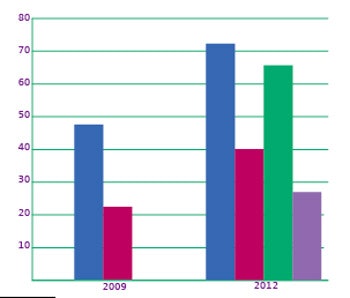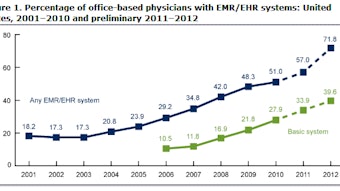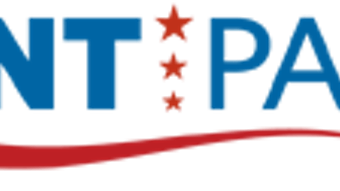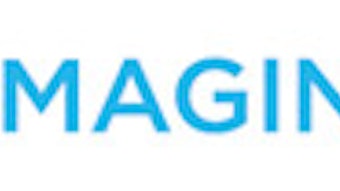Medicare Quality Penalties: A Wizard Can Help
Rahul K. Shah, MD George Washington University School of Medicine Children’s National Medical Center, Washington, DC This column has afforded a unique opportunity during the past five years to help escalate patient safety and quality improvement issues that are highlighted in the media, within our Academy, and anecdotally from our practices. Rarely do we delve into politically sensitive or potentially explosive issues. However, the recent data on the Physician Quality Reporting System (PQRS) has some a bit concerned about the readiness of our Academy members to proactively engage in reporting. Fortunately, the Academy has been ahead of the game for PQRS reporting and has even partnered to provide our membership an extremely easy portal/method to track and report the requisite metrics called PQRIwizard (https://aaohns.pqriwizard.com/). Our Academy staff members, Jean Brereton and Peter Robertson, have been monitoring the national landscape vis-à-vis PQRS and have made efforts to let our membership know about this program. PQRS is a program from the Centers for Medicare & Medicaid Services (CMS) that began in 2007 and initially purported to be a voluntary program that provided financial incentives for reporting on specific quality measures. Recent data demonstrates that for individual physicians the incentive payments are around $2,000, and for practices it is about $20,000.1 I stress the word “initially” in the above statement as now it is clear that the time for incentives is passing. CMS has stated that in 2015, there will be payment adjustments—read: penalties—for not properly reporting the mandatory quality metrics. The time has now come! The 1.5 percent noncompliance penalty will not be put in place until 2015. However, CMS is basing this penalty on data collected in 2013! Therefore, Academy members must start reporting the PQRS metrics to CMS now if they do not want to be penalized in 2015. To this end, the Academy is an excellent resource for helping the membership learn about, collect, and report the pertinent PQRS metrics.2 The tool, PQRIwizard, helps accomplish the tedious part of the data collection and reporting for practitioners and practices. It is no surprise that to encourage compliance, CMS raises the payment adjustment to two percent in 2016. CMS has been consistent in following the stated plan to provide support and incentives in the beginning so that practitioners and practices could take a few years to integrate reporting into their practice flow. CMS has always noted that in the future the reporting of PQRS metrics would be mandatory with payment adjustments for noncompliance. Some of our Academy members do not have a large proportion of Medicare patients in their patient panels and hence are not being aggressive in putting in place hard-wired pathways to ensure proper data collection. That may suffice for now, but many of us fear that this is just the beginning. If there is proof-of-principle that the payment adjustments markedly increase reporting on quality metrics, then I am sure all insurers will be forced to collect similar data with similar adjustments. Our Academy has tremendous resources for the PQRS program and has tools available to help. I strongly encourage our membership to spend a bit of time on these items to understand what is being asked of us, and what we will potentially be penalized for not reporting. Furthermore, for those practitioners and physicians attempting to avert the 2015 payment adjustment, it is imperative to begin reporting and collecting the data this year—in 2013—for this is the year that the 2015 adjustments will be based upon. We encourage members to write us with any topic of interest and we will try to research and discuss the issue. Members’ names are published only after they have been contacted directly by Academy staff and have given consent to the use of their names. Please email the Academy at qualityimprovement@entnet.org to engage us in a patient safety and quality discussion that is pertinent to your practice. References Most doctors headed for penalty over Medicare quality reporting. http://www.ama-assn.org/amednews/2012/05/28/gvl10528.htm, accessed 1/30/13. http://www.entnet.org/pqrs.

George Washington University School of Medicine
Children’s National Medical Center, Washington, DC
Fortunately, the Academy has been ahead of the game for PQRS reporting and has even partnered to provide our membership an extremely easy portal/method to track and report the requisite metrics called PQRIwizard (https://aaohns.pqriwizard.com/). Our Academy staff members, Jean Brereton and Peter Robertson, have been monitoring the national landscape vis-à-vis PQRS and have made efforts to let our membership know about this program.
PQRS is a program from the Centers for Medicare & Medicaid Services (CMS) that began in 2007 and initially purported to be a voluntary program that provided financial incentives for reporting on specific quality measures. Recent data demonstrates that for individual physicians the incentive payments are around $2,000, and for practices it is about $20,000.1 I stress the word “initially” in the above statement as now it is clear that the time for incentives is passing.
CMS has stated that in 2015, there will be payment adjustments—read: penalties—for not properly reporting the mandatory quality metrics. The time has now come! The 1.5 percent noncompliance penalty will not be put in place until 2015. However, CMS is basing this penalty on data collected in 2013!
Therefore, Academy members must start reporting the PQRS metrics to CMS now if they do not want to be penalized in 2015. To this end, the Academy is an excellent resource for helping the membership learn about, collect, and report the pertinent PQRS metrics.2 The tool, PQRIwizard, helps accomplish the tedious part of the data collection and reporting for practitioners and practices.
It is no surprise that to encourage compliance, CMS raises the payment adjustment to two percent in 2016. CMS has been consistent in following the stated plan to provide support and incentives in the beginning so that practitioners and practices could take a few years to integrate reporting into their practice flow. CMS has always noted that in the future the reporting of PQRS metrics would be mandatory with payment adjustments for noncompliance.
Some of our Academy members do not have a large proportion of Medicare patients in their patient panels and hence are not being aggressive in putting in place hard-wired pathways to ensure proper data collection. That may suffice for now, but many of us fear that this is just the beginning. If there is proof-of-principle that the payment adjustments markedly increase reporting on quality metrics, then I am sure all insurers will be forced to collect similar data with similar adjustments.
Our Academy has tremendous resources for the PQRS program and has tools available to help. I strongly encourage our membership to spend a bit of time on these items to understand what is being asked of us, and what we will potentially be penalized for not reporting. Furthermore, for those practitioners and physicians attempting to avert the 2015 payment adjustment, it is imperative to begin reporting and collecting the data this year—in 2013—for this is the year that the 2015 adjustments will be based upon.
We encourage members to write us with any topic of interest and we will try to research and discuss the issue. Members’ names are published only after they have been contacted directly by Academy staff and have given consent to the use of their names. Please email the Academy at qualityimprovement@entnet.org to engage us in a patient safety and quality discussion that is pertinent to your practice.
References
- Most doctors headed for penalty over Medicare quality reporting. http://www.ama-assn.org/amednews/2012/05/28/gvl10528.htm, accessed 1/30/13.
- http://www.entnet.org/pqrs.
















